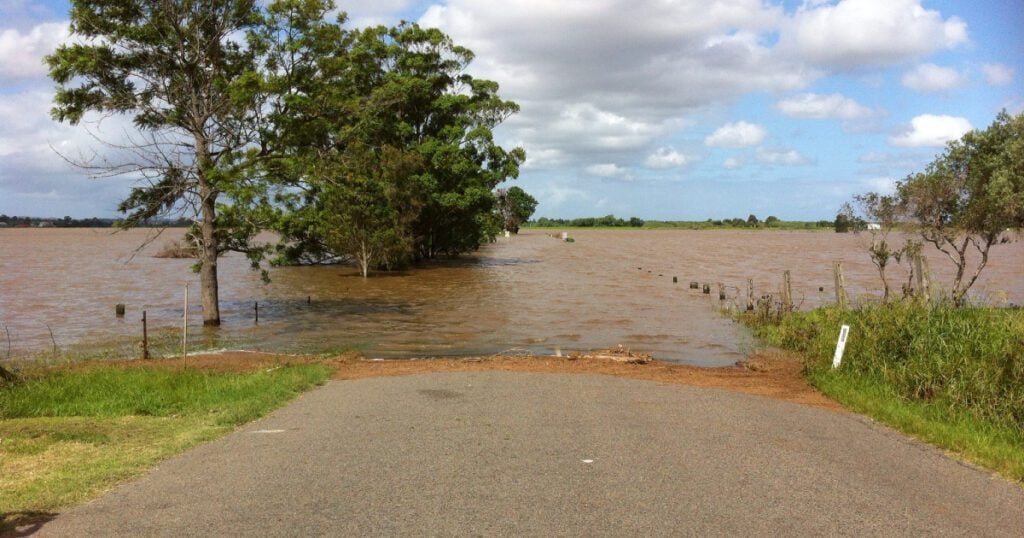How you can use tax pooling like a savings account
In business, cash is king, and being able to access funds quickly in a crisis can mark the difference between success and failure. In an unpredictable and volatile world, having the ability to access cash during challenging times can be priceless.
Just ask the taxpayers who were able to access provisional tax payments they had deposited in the TMNZ tax pool when COVID-19 brought the world to a standstill.
With tax pooling, companies can easily request refunds of provisional tax payments they have made at the year to date without waiting to file their tax returns. They can receive their refunds within a matter of days.
Tax can be one of the largest expenditure lines for a business, so flexibility is vital.
In this economic climate, it’s far from ideal to have large sums tied up with the IRD.
What if you can’t access the money in an emergency?
What if your profitability projections trend down over the year, meaning you’re likely to overpay?
For taxpayers with a 30 June year-end, the first instalment of provisional tax is due on 28 November. Every business and sole trader should ask themselves the questions above, especially if their work is seasonal or cyclical in nature.
Businesses should also think about the accessibility of their funds if their income is difficult to predict or fluctuates due to factors such as commodity prices, adverse weather events, or the exchange rate.
Accessible tax money
Depositing tax payments into a tax pool can form part of an effective risk management strategy in times of uncertainty.
Look at it like depositing into a savings account with the added benefit of eliminating late payment penalties and IRD interest. You can still access your funds if you need to, you’re covering yourself for tax time and possibly extending your time to pay.
How depositing provisional tax into a tax pool works
Tax pooling operates with the blessing of the New Zealand tax department. TMNZ has been a registered provider of the service since 2003.
Companies deposit their provisional tax payments into a shared pool instead of directly into their own IRD account.
Each payment is date stamped as at the date it is made into the pool (e.g., 28 November). Funds are held in an account at the IRD. This account is managed by an independent trustee, Guardian Trust.
A taxpayer holds their payments in the pool until it instructs TMNZ to transfer their deposits to their own IRD account.
Taxpayers can request a refund from TMNZ of provisional tax deposits held in the pool at any time without having to file their tax return or an estimate with IRD.
Refunds may be subject to meeting anti-money laundering requirements. (Corporate taxpayers also need to be mindful of imputation credit account impacts when requesting a refund of tax they hold in the pool).
A taxpayer typically instructs TMNZ to transfer their tax deposits to their own IRD account once they finalise their tax return and know the amounts required at each instalment date to satisfy their liability for the year.
As the tax being transferred from the TMNZ tax pool to a taxpayer’s IRD account has been date stamped to when it was originally paid into the pool, IRD recognises it as if the taxpayer paid the whole amount on time.
This remits any IRD interest and late payment penalties showing on the taxpayer’s account.
Access previously paid funds
If you’re short on cash, tax pooling also allows you to temporarily withdraw deposits you hold in our pool.
You can access the amount of provisional tax funds you have deposited (minus an upfront interest cost). You also have the option to restore your deposit at the original deposit date once your cashflow situation has improved.
Buy some time
When preserving cashflow is high on the agenda, you can use a tax pool to defer upcoming provisional tax payments to a date in the future without incurring late payment penalties.
For example, someone with a 7 April terminal tax date could have up to 75 days from that date to settle their provisional tax.
Earn more interest if you’ve overpaid
If you have surplus tax remaining in the pool once you have transferred money to the IRD to satisfy your liability, you can earn interest above the IRD’s credit interest rate by selling the excess tax to other pool members that have underpaid for the year or have received a notice of reassessment from the IRD.
Please note that this is subject to market demand.
The purchasing taxpayer can reduce the interest cost faced on their underpayment significantly when applying this tax against their liability. This also eliminates any late payment penalties.
Overpayers earn more interest while fellow taxpayers pay less. Everyone’s a winner!
Find out more
To learn more about managing your provisional tax, check out our tax finance guide and cashflow management tips for businesses.
Alternatively, please get in touch with our friendly support team if you have any questions. We’re always happy to help.
Payment options for 15 January provisional tax
One of the challenges of paying provisional tax in times of economic uncertainty is making a payment that is both appropriate and does not negatively impact your cashflow.
Tax is one of the largest expenditure lines for a business, so you want to get it right.
You don’t want to overpay, because that’s money sitting at Inland Revenue (IRD) that you could be utilising in your business. Conversely, you don’t want to underpay because you run the risk of facing IRD interest of seven percent and late payment penalties from the date of your underpayment.
Tax pooling offers a safety net if you cannot make your 15 January payment on time or accurately forecast your payment due to the impact of COVID-19.
It's a service that offers benefits not available to those who pay IRD directly, at no downside.
Pay provisional tax when it suits you
The Christmas-early New Year period is often a challenging time. After all, it is a four-week break from business as usual as things slow down.
For someone looking to manage cashflow, tax pooling lets you pay your 15 January provisional tax when it suits you.
Acceptance is guaranteed, and no security is required.
As an IRD-approved tax pooling provider, Tax Management NZ (TMNZ) can be used to pay your tax on the actual date it is due (e.g. 15 January 2022).
You then pay TMNZ as soon as cash is available and IRD recognises it as if the money was paid on time by you.
There are a couple of ways to pay.
You can finance your provisional tax payment. This sees you pay a fixed interest cost upfront and then the core tax amount at an agreed date in the future.
Alternatively, you can enter an instalment arrangement. Under this payment plan, interest is recalculated on the core tax amount owing at the end of each month.
The instalment arrangement offers flexibility in the sense you can pay as and when it suits your cashflow.
All tax pooling arrangements eliminate late payment penalties. The interest payable is significantly cheaper than the seven percent IRD charges if you fail to pay on time.
Pay what you think, top up later
Most taxpayers tend to base their provisional tax on a 105 percent uplift of the previous year’s liability.
However, the current economic climate may have forced some in highly impacted sectors to revise expectations around profitability for the 2021-22 income year to the point where making payments based on the calculation above is no longer appropriate.
Others simply may be facing difficulty forecasting their liability due to the uncertainty of COVID-19. As such, they may want to keep cash close at hand in case things change suddenly.
Now there is some good news.
You do not need to pay provisional tax on 15 January based on uplift, nor do you have to file an estimate to pay less than uplift.
Instead you can pay provisional tax based on your forecast expectations of profitability for the year at the time.
Don't worry if, once you determine the liability for the 2021-22 income year, it transpires that you have underpaid. You can purchase any additional tax you owe on 15 January 2022 from TMNZ.
This can be done at a cost that is less than IR’s debit interest rate. It also eliminates any late payment penalties incurred.
That's because the tax you are purchasing from TMNZ was paid to IRD on the date it was originally due.
You pay the core tax plus TMNZ's interest cost when you make your payment to TMNZ. TMNZ then applies the date-stamped tax sitting in its IRD account against your liability.
IRD will treat it is if you paid on 15 January 2022 once it processes this transaction. The remits any late payment penalties showing on your account.
Please contact us if you have any questions about tax pooling.
Cashflow relief for farmers impacted by flood or drought

Those impacted by flooding in Canterbury or drought elsewhere in New Zealand have another option to manage their cashflow.
It’s called tax pooling.
It lets taxpayers defer their upcoming provisional tax payments to a time that suits them, without incurring interest (currently seven percent) and late payment penalties from Inland Revenue (IRD).
The service – which has been operating with the blessing of the taxman since 2003 – is available through an approved commercial provider such as Tax Management NZ (TMNZ).
The impact of extreme weather
The Government has declared the recent flood in the Canterbury region as a medium-scale adverse weather event.
As those in this part of New Zealand assess the damage and begin the clean-up following the large deluge of rain, a big dry is beginning (or, in some cases, continuing) to bite other parts of New Zealand. The drought has been classified as a large-scale adverse weather event.
Farmers impacted by these contrasting weather events are being encouraged to act early and assess their options if they need assistance.
For those battling drought, some tough decisions around stock and feed will need to be made. In the Canterbury region, flooding only compounds the financial pressure as many were also dealing with drought beforehand.
Cashflow will be important during this difficult period.
Help is available
Managing tax payments will be a key consideration in managing cashflow too.
IRD, to its credit, is exercising some discretion.
It will allow farmers and growers affected by the Canterbury flood to make early withdrawals from the income equalisation scheme.
For those whose current or future income will be significantly affected by drought, IRD will allow late deposits for the 2019-20 income year up to 30 June 2021.
Early withdrawals are also available in the case of a medium-scale adverse event or if someone is suffering serious hardship.
Please note a taxpayer must satisfy certain criteria for IRD to exercise its discretion around the income equalisation scheme.
There's also the option of re-estimating provisional tax.
However, while that allows someone to get a refund of tax they have paid earlier in the year, it does come with some risk.
Free up cashflow by deferring payment of provisional tax
Farmers growers with a May balance date are due to pay their the final instalment of provisional tax for the 2020-21 income on 28 June.
For a small interest cost, someone can use TMNZ to defer this payment.
We make a date-stamped tax deposit to IRD on behalf of a taxpayer on 28 June and the taxpayer pays us when it suits their cashflow.
A taxpayer can either pay the full tax amount at a date of their choosing or enter an instalment arrangement.
When a taxpayer satisfies their arrangement with TMNZ, IRD will treat it as if the taxpayer had paid on time. Any interest and late payment penalties showing on their account will be remitted.
A taxpayer has up to 12 months to pay their 28 June provisional tax with TMNZ.
TMNZ’s interest cost is much cheaper than what IRD charges when someone pays their tax late.
Please click here to register with TMNZ. Alternatively, feel free to contact us if you have any questions.
Bright-line test: Don’t get caught by ‘change-of-use’ rule fishhook

Anyone who lives away from their main home for more than a year will be liable to pay income tax on any profit they make from the sale of a residential property sold within the new bright-line period.
That’s because of the introduction of a ‘change-of-use’ rule that came into effect when the Government amended the legislation earlier this year, in its bid to cool rampant property prices in New Zealand.
For salary and wage earners who are renovating their house, away on secondment or looking to build a property, a hefty and unpleasant tax bill may be lying in wait as a result of this fishhook.
Detailed explanation
Under the bright-line test, an exemption applies if the property a person is selling is their main home.
Prior to 27 March 2021, a property was considered a main home if the owner had lived in it or used it as a main home for at least 50 percent of the time that they owned it.
However, under the new bright-line rules – which apply to a residential property that someone purchases on or after 27 March 2021 and sells within 10 years – homeowners can only be away from their main home for a continuous period of up to 365 days.
Homeowners must treat the days they are away from their main home as ‘non-main home days’.
If someone is away for more than 12 months and then later sells their house within 10 years of acquiring it, the main home exemption will not apply.
This is the 'change-of-use' rule.
It means a person will have to pay income tax on the profit they make from that sale for the period they were not using the property as their main home.
Example
A homeowner sells a property six years after the start of the 10-year bright-line period.
During that six-year bright-line period, they had moved out and rented this house for 15 months while they lived and worked in another part of New Zealand.
Any profit will be split between the 15 months and remaining 57 months during the bright-line period. The homeowner is liable to pay tax on the amount of profit apportioned to the 15-month period.
The impact for salary and wage earners
This has potential – and unpleasant – tax ramifications for salary and wage earners who:
- Renovate their home.
- Live away from their main home due to being on secondment.
- Purchase a section with the intention of building a property, especially if it is going to take more than a year after buying the section to move into their newly built house.
The income a salary and wage earner receives from selling a property is added to their other income sources for that year.
For most, given the eye-watering sums some houses are currently fetching on the market, this will force them into the top tax bracket of 39 percent for that year. The top tax bracket applies to those earning income above $180,000.
There are potential provisional tax ramifications, too.
If the income tax liability from the sale of a property is $60,000 or more, a salary and wage earner will need to pay this by 7 May to avoid incurring IRD interest (currently seven percent) – even if there was no obligation for this person to pay provisional tax during the income year they sell the property.
This is because they fall outside the safe harbour provision.
They can, however, use an IRD-approved tax pooling provider such as Tax Management NZ to reduce this interest cost by a notable amount. The savings can be significant.
They will also enter the provisional tax regime during the following income year due to the previous year's income tax liability being greater than $5000.
Anyone who expects to be away from their home for more than 12 months will need to keep accurate records of the number of days they live away from the property as well as any deductible expenses they wish to claim against the property's sale proceeds.
Seek advice
The rules around the taxation of property are complex.
As always, we recommend you speak to an accountant if you have any questions or wish to err on the side of caution.
Can AIM taxpayers use tax pooling?

A taxpayer cannot use tax pooling to defer payment of, or settle, provisional tax instalments calculated under the accounting income method (AIM).
However, Tax Management NZ (TMNZ) can help AIM taxpayers with terminal tax or when they receive a notice of reassessment.
What does tax pooling legislation say about AIM?
Legislation in the Income Tax Act 2007 clearly states that a taxpayer can use tax pooling funds to satisfy “a provisional tax liability other than under the AIM method”.
Please refer to sections RP17-RP21 of the Act for further information.
Why IRD doesn’t allow tax pooling to assist with AIM payments?
Inland Revenue (IRD) says tax pooling manages taxpayers’ uncertainty around provisional tax payments and their exposure to interest.
Consistent with this objective, pooling is not currently available for tax types where someone has certainty of their liability at the time of payment (for example, GST).
Given the payments made under AIM are calculated on actual accounting profit, taxpayers will have certainty about what's due.
As such, it's IRD’s view that it's not appropriate to allow tax pooling for provisional tax payments calculated under AIM.
What does that mean for you?
IRD will reject the use of any tax pooling funds to satisfy an underpaid AIM instalment. As a result, late payment penalties and interest will continue to show on a taxpayer account.
They will, however, accept the use of tax pooling funds to settle a terminal tax liability. The same applies if an AIM taxpayer has additional tax to pay after receiving a notice of reassessment.
Please be mindful of these facts when entering arrangements with TMNZ.
It’s also an important consideration before electing to use AIM to calculate provisional tax.
That's because paying tax when income is earned is not necessarily the same as when cash is received.
If someone is unable to pay an AIM instalment on time or in full due to cashflow constraints, the safety net of tax pooling will not be available to reduce their exposure to interest and eliminate late payment penalties.
You're more than welcome to contact TMNZ if you have any questions.
Make IRD interest, late payment penalties disappear

A missed or underpaid provisional tax payment often means a taxpayer is faced with a steep interest cost and potentially late payment penalties on top of what they owe.
However, tax pooling can make that go away.
A big frustration with Inland Revenue (IRD) is that it expects taxpayers to pay the correct amount of tax on the dates it sets. No ifs, no buts.
Fail to adhere to this rigid timetable or underpay and you will face the consequences.
IRD charges interest – currently seven percent – from the date the payment was due until you pay the outstanding amount.
Late payment penalties may also apply as follows:
- One percent the day after payment was due.
- An additional four percent if the tax amount (including late payment penalties) remains unpaid after seven days.
A tax pooling provider such as Tax Management NZ (TMNZ) operates with the blessing of IRD. It can be of assistance if taxpayers find themselves in this situation.
Where might this be useful?
In the event you missed your recent 7 May provisional tax payment – or any other instalment relating to the 2020-21 income year, for that matter – we can eliminate any late payment penalties for which you may be liable and significantly reduce the interest you pay.
You make your payment to TMNZ and we apply backdated tax that was paid to IRD on the original date(s) it was due against your liability.
The taxman treats it as if you paid on time once it processes this transaction.
This wipes any IRD interest and late payment penalties showing on your account.
You have the option of making to TMNZ a one-off payment at a date of your choosing or making regular instalment payments towards your liability over a longer period.
TMNZ gives you up to 13 months to pay your 7 May provisional tax for the 2020-21 income year.
Is your 2020 terminal tax overdue?
You still have time to use TMNZ to reduce the interest cost and eliminate late payment penalties if you have outstanding provisional or terminal tax liabilities for the 2019-20 income year.
However, you will have to act quickly.
Tax pooling legislation gives taxpayers an additional 75 days past their terminal tax date to pay their terminal tax.
If your terminal tax for the 2019-20 income year was due on 7 April 2021, you would have until 15 June to settle owe with TMNZ.
Reassessed by IRD
TMNZ can also assist with historic income tax payments and other tax types such as GST and PAYE if you receive a notice of reassessment from IRD.
You have 60 days from the date the IRD issues this notice to use tax pooling.
Please contact us if you have any questions.
Audit claim data highlights level of IRD’s behind-the-scenes activity
Inland Revenue (IRD) is still actively reviewing taxpayers despite COVID-19 and the various business disruptions the pandemic has caused in the past 12 months, according to figures released by Accountancy Insurance.
They saw a 31 percent increase in claims in all categories during the 2020-21 financial year compared to the 2019-20 financial year.
In terms of the proportion of claims, most related to GST verification (55 percent) and income tax returns (nearly 28 percent).
GST verification claim activity increased by 48 percent and income tax return-related claim activity by 67 percent in the 12 months to 31 March 2021.
The income tax return claim activity included cases relating to two campaigns IRD commenced in late 2020: They were the increased enforcement of the bright-line rules in December and the Automatic Exchange of Financial Account Information programme in November.
Accountancy Insurance says the following taxpayer categories had the highest number of claims during the 2020-21 financial year:
- Sole trader/partnership/non-trading company and trusts.
- Business groups <$500,000-$3 million turnover.
Industries under the spotlight
As most know, IRD has access to several large data sources which they use to help identify high-risk industries where there could potentially be low levels of tax compliance.
Low levels of compliance are usually seen in sectors where there is a high level of cash transactions.
Hospitality and construction are two such industries that IRD monitors regularly. The tax department recently launched a new campaign aimed at the latter.
And as well as property and the real estate industry, IRD is also taking an interest in cryptoassets.
Accountancy Insurance notes that client risk review claim activity decreased by 62 percent in the 12 months to 31 March 2021. In fact, this accounted for just 9.74 percent of all claims.
However, that was likely because the businesses which are typically subject to these reviews and audits were the ones most affected by multiple COVID-19 lockdowns in 2020.
They expect things will return to normal throughout 2021 as IRD ramps up its audit activity.
Reminder: We can help with IRD audits and voluntary disclosures
As an IRD-approved tax pooling provider, Tax Management NZ (TMNZ) can be used to get significant savings on Inland Revenue interest if they owe additional tax as a result of IRD issuing a notice of reassessment after an audit or voluntary disclosure.
TMNZ lets someone apply tax that was paid to IRD on the original due date(s) against their liability.
As such, IRD treats it as if they paid on time once it processes this tax pooling transaction. This eliminates any late payment penalties. Please note the legislation prohibits us from assisting with shortfall penalties.
A taxpayer can use TMNZ to reduce the interest cost on the difference between the original assessment amount and the reassessed amount that arises due to an audit or voluntary disclosure.
We can assist with income tax, and other tax types such as GST, PAYE and FBT when there is a reassessment.
Someone has up to 60 days from the date IRD issues the reassessment notice to pay the tax they owe via TMNZ.
TMNZ has the largest and oldest supply of audit tax in the market.
Please contact us if you have any questions about tax pooling. We’re happy to help.
Commissioner’s discretion for tax pooling

A provision within legislation allows taxpayers to use tax pooling for certain income tax or RWT voluntary disclosures where no return has been previously filed.
This is known as Commissioner’s discretion.
And it’s worth seeking if a taxpayer satisfies all relevant criteria (see below), as settling these underpaid tax types through an approved tax pooling provider such as Tax Management NZ (TMNZ) can result in notable interest savings. The interest we charge can be significantly lower than IR.
To use tax pooling for historical income tax and other tax types, there generally needs to be a notice of reassessment issued by Inland Revenue (IRD).
However, section RP17B (9) Income Tax Act 2007 stipulates that the Commissioner’s discretion found in RP17B (10) of the Act may be available in situations where a voluntary disclosure for income tax or RWT is made and a return for that tax type has not previously been filed.
The criteria for Commissioner’s discretion
That said, there are three conditions a taxpayer seeking Commissioner’s discretion to use tax pooling funds to settle income tax and RWT obligations must meet.
They are as follows:
- The increased amount arises as a result of an event or circumstance beyond the person’s control; and
- The person has a reasonable justification or excuse for not filing the return by the required date; and
- The person has an otherwise good compliance history for two income years before the income year in which the voluntary disclosure is made.
A taxpayer must satisfy all three requirements for the Commissioner to exercise her discretion.
This ensures that in exercising discretion she is satisfied that each occasion of non-compliance is not a deliberate act or a continuation of failures because of the taxpayer’s inadequate or poorly applied internal controls.
We recommend you refer to the examples 12 and 13 (pages 44 and 45) of the Tax Information Bulletin Vol 23, No 8, October 2011 to get a sense of the scenarios where IRD will allow or decline a request for Commissioner's discretion.
Applying for Commissioner’s discretion
The process is straightforward.
An application asking the Commissioner to exercise her discretion to use tax pooling funds can be made in writing.
Be sure to include the taxpayer’s name and IRD number in this correspondence.
Outline the details of the case in a few paragraphs. We recommend splitting this information under the following headings:
- Background information. Include information about the taxpayer and nature of their business. It should also contain contextual information that you deem relevant, such as historical business relationships, personal circumstances, and relationships with other/historical accountants.
- The increased amount arises as a result of an event or circumstance beyond the person's control. Include detailed (and chronological) events or factors that have occurred throughout the period in question that provide further contextual explanation as to how the liability has arisen and not been declared until now, and how this was beyond the taxpayer’s control.
- The person has a reasonable justification or excuse for not filing the return by the required date. Include any details that show the client has not been purposefully negligent.
- The person has an otherwise good compliance history for two income years before the income year in which the voluntary disclosure is made. Include details that support a good prior history. It’s important to show this occurrence is out of the ordinary and therefore worthy of consideration.
TMNZ has an email template available should you require this.
Requests asking the Commissioner to exercise her discretion can be sent to Rajni Raju at IRD by emailing Rajni.Raju@ird.govt.nz.
TMNZ is here to help
If you’d like further information on Commissioner’s discretion or wish to discuss a particular scenario, please call us on 0800 829 888 or email support@tmnz.co.nz.
IRD payment allocation rules explained

Provisional tax payments made on or before the date of the final instalment for the year are applied to the oldest overdue tax amount first while payments made after the date of the final instalment are applied to the interest owing on any overdue tax first, then the overdue tax amount.
The IRD payment allocation rules – which are found in s120F and s120L Tax Administration Act 1994 – also apply to payments made via a tax pooling provider such as Tax Management NZ (TMNZ).
It’s important to understand how they work and differ from one another.
Detailed explanation
Section 120L covers provisional tax payments made on or before the date of the final instalment for the year.
It requires IRD to apply a payment to unpaid tax in order from oldest to newest. Please note the unpaid tax amount(s) include late payment penalties.
Section 120F deals with payments that are made after the date of the final provisional tax instalment for the year.
It requires IRD to apply payments, in the following order, towards:
- The interest accrued on the oldest unpaid tax amount until that interest is paid.
- The oldest unpaid tax amount until that tax is paid.
- The interest accrued on the next oldest unpaid tax amount until that interest is paid.
- The next oldest unpaid tax amount until that tax is paid.
- To each subsequent arising interest and unpaid tax amount using the pattern above, in time order that relevant unpaid tax arises, until they are paid.
Again, the unpaid tax amount in s120F includes late payment penalties.
The ramifications
These allocation rules mean a taxpayer may well find a tax payment they intended to be destined for a particular instalment date is allocated by IRD’s system to earlier unpaid amounts first.
For example, let's say they may make a $10,000 payment on time and in full on 15 January 2021. However, if they failed to pay their 28 August 2020 (P1) provisional tax, then their $10,000 payment will be applied as per s120L to the overdue tax amount (including late payment penalties) at P1 first.
As such, this leaves them exposed to additional (and unexpected) late payment penalties and interest.
It does not matter if the $10,000 payment they made on 15 January 2021 is a date-stamped transfer from the account of a tax pooling provider. Please see sRP19 (1B) Income Tax Act 2007.
In other words, you need to clear the tax liability at all earlier instalment dates first.
How TMNZ can assist with missed provisional tax payments
It's best to purchase from TMNZ the backdated tax to cover the shortfall at the earlier instalment date.
This achieves two things.
Firstly, it eliminates late payment penalties and significantly reduces the interest cost on the underpaid tax.
That’s because the tax you are purchasing from TMNZ was paid to IRD on the date it was originally due. IRD will treat it as if you have paid on time once it processes your transaction with TMNZ.
Secondly, it ensures that any other payment that was otherwise made on time and in full will be allocated to the particular provisional tax date for which it was intended.
A taxpayer has up to 75 days past their terminal tax date for that tax year to purchase the tax they require.
For example, if you have a terminal tax date of 7 February 2021, you will have until mid-April to settle your 2020 income tax with TMNZ. Those with a 7 April 2021 terminal tax date have until mid-June.
Please contact us if you have any questions. We're happy to help.
Payment options for 15 January provisional tax
Tax is one of the largest expenditure lines for a business, so you want to get it right.
You don’t want to overpay, because that’s money sitting at Inland Revenue (IRD) that you could be utilising in your business. Conversely, you don’t want to underpay because you run the risk of facing IRD interest of seven percent and late payment penalties from the date of your underpayment.
Tax pooling offers a safety net if you cannot make your 15 January payment on time or accurately forecast your payment due to the impact of COVID-19.
It's a service that offers benefits not available to those who pay IRD directly, at no downside.
Pay provisional tax when it suits you
The Christmas-early New Year period is often a challenging time. After all, it is a four-week break from business as usual as things slow down.
For someone looking to manage cashflow, tax pooling lets you pay your 15 January provisional tax when it suits you.
Acceptance is guaranteed, and no security is required.
As an IRD-approved tax pooling provider, Tax Management NZ (TMNZ) can be used to pay your tax on the actual date it is due (e.g. 15 January 2021).
You then pay TMNZ as soon as cash is available and IRD recognises it as if the money was paid on time by you.
There are a couple of ways to pay.
You can finance your provisional tax payment. This sees you pay a fixed interest cost upfront and then the core tax amount at an agreed date in the future.
Alternatively, you can enter an instalment arrangement. Under this payment plan, interest is recalculated on the core tax amount owing at the end of each month.
The instalment arrangement offers flexibility in the sense you can pay as and when it suits your cashflow.
All tax pooling arrangements eliminate late payment penalties. The interest payable is significantly cheaper than the seven percent IRD charges if you fail to pay on time.
Pay what you think, top up later
Most taxpayers tend to base their provisional tax on a 105 percent uplift of the previous year’s liability.
However, the current economic climate may have forced some in highly impacted sectors to revise expectations around profitability for the 2020-21 income year to the point where making payments based on the calculation above is no longer appropriate.
Others simply may be facing difficulty forecasting their liability due to the uncertainty of COVID-19. As such, they may want to keep cash close at hand in case things change suddenly.
Now there is some good news.
You do not need to pay provisional tax on 15 January based on uplift, nor do you have to file an estimate to pay less than uplift.
Instead you can pay provisional tax based on your forecast expectations of profitability for the year at the time.
Don't worry if, once you determine the liability for the 2020-21 income year, it transpires that you have underpaid. You can purchase any additional tax you owe on 15 January 2021 from TMNZ.
This can be done at a cost that is less than IR’s debit interest rate. It also eliminates any late payment penalties incurred.
That's because the tax you are purchasing from TMNZ was paid to IRD on the date it was originally due.
You pay the core tax plus TMNZ's interest cost when you make your payment to TMNZ. TMNZ then applies the date-stamped tax sitting in its IRD account against your liability.
IRD will treat it is if you paid on 15 January 2021 once it processes this transaction. The remits any late payment penalties showing on your account.
Please contact us if you have any questions about tax pooling.









